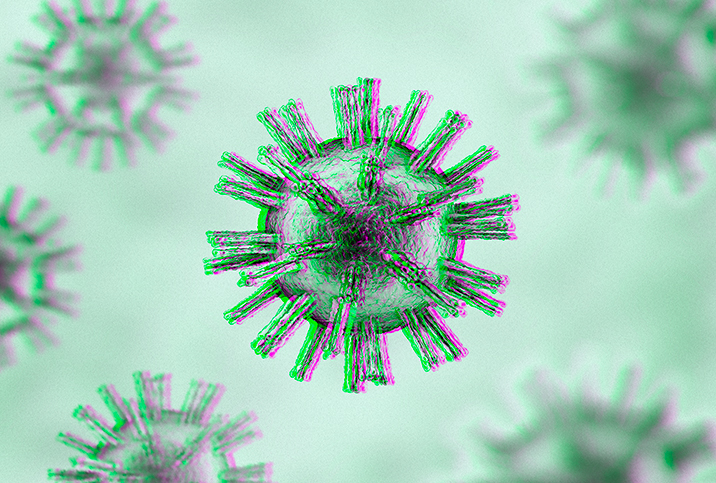How Well Do You Know Genital Herpes?

Genital herpes is a sexually transmitted disease (STD) that can create blisters or sores around the site of infection. It is caused by the herpes simplex virus (HSV).
Two different types of herpes simplex virus can affect the genitals. One type is the same virus that causes cold sores around the mouth.
It's important to know as much as possible about genital herpes including how to prevent it, what symptoms to watch for and how it's treated in order to avoid contracting it and/or spreading it to a partner.
Risks and causes of genital herpes
Two different viruses can cause herpes: HSV-1 and HSV-2. Both can cause genital herpes, and the outbreaks closely resemble each other from a clinical perspective, explained Peter Leone, M.D., a professor of medicine in the infectious diseases division at the University of North Carolina School of Medicine in Chapel Hill.
"HSV-2 tends to recur with some frequency and causes asymptomatic shedding of virus, whereas HSV-1 is a frequent cause of genital herpes but tends to recur at a much lower rate than HSV-2 and doesn't cause frequent asymptomatic shedding," Leone said.
Asymptomatic shedding is important to understand because this means the virus is active and infectious but with no visual clues or symptoms to make carriers aware of it.
Anyone who is sexually active could be at risk of contracting the herpes virus.
"The greatest risk is with male-to-female transmission and with anal receptive intercourse," Leone said.
How is herpes spread?
"Genital herpes is spread during skin-to-skin contact," said Victor Sun, M.D., a family medicine doctor in Glendale, California, and a medical consultant with SuperPill, an online prescription service.
He explained that HSV-2 is usually the strain which is transmitted during sex and can cause herpes lesions around the genitals after infection. It can be spread by sharing sex toys or from fingers to the genitals, Leone added.
In contrast, he said HSV-1 in adults is usually spread through oral sex. However, HSV-1 isn't primarily contracted through sex. A majority of people with HSV-1 get infected during childhood from nonsexual contact, such as a kiss from a family member, according to the Centers for Disease Control and Prevention (CDC).
A majority of people with either strain of the virus do not show any symptoms, according to the World Health Organization (WHO).
Genital herpes vs. genital warts
Genital herpes can sometimes be confused with genital warts, which are caused by a different virus.
"Both are caused by viruses, but genital herpes is caused by HSV-1 or -2, while genital warts are caused by human papillomavirus [HPV]," Leone said.
He listed other similarities between the two conditions, including:
- They don't always present with symptoms.
- They can both be highly contagious.
- They are passed via skin-to-skin contact.
"Genital warts are typically the same color as your skin and can be raised or flat," Leone explained. "They may also have a cauliflower appearance and are usually painless."
In contrast, symptomatic genital herpes resembles blisters or ulcers, which may be painful or feel as if they are burning.
Myths, misconceptions and stats
Since there can be confusion between genital herpes and other diseases, it is important to get tested if you are symptomatic in order to be fully informed about your STD status.
Herpes is treatable but not curable. However, antiviral medication can be used to manage it if necessary.
Transmission can still occur even when the symptoms of the virus are not present.
"If genital herpes goes undiagnosed, affected individuals with active lesions may unknowingly spread the disease," Sun said.
While there is still stigma attached to herpes, the WHO estimates that as of 2016, 3.7 billion people younger than age 50 (two-thirds of the global population) had an HSV-1 infection, and about 491 million people ages 15 to 49 had an HSV-2 infection. The WHO also reported that only 10 percent to 20 percent of people with HSV-2 are subsequently diagnosed with genital herpes.
Condoms are not 100 percent effective at preventing genital herpes, as it can be passed via skin contact on other areas of the body. However, an African study found condom use reduced the risk of transmission from men to women by 96 percent and from women to men by 65 percent on a per-act basis.
Due to the widespread nature of herpes coupled with the stigma attached to it, the CDC recommends specifically testing for it only if you have genital symptoms.
Facts, studies and history
The word herpes means "to creep or crawl" in Greek, a description that references the spreading nature of the virus. However, a group of scientists has proposed a name change to "habita," from the Latin word "habitare," referring to the latency of the virus as it dwells within, sometimes for the majority of a person's life.
Herpes first affected ancient chimpanzees. HSV-1 came about even before the evolutionary split from these apes, and HSV-2 first infected Paranthropus boisei (an early hominid) and then Homo erectus around 1.6 million years ago.
Since then, researchers believe migration from Eurasia to Europe over 5,000 years ago led the virus to denser populations of people at a time when kissing gained popularity as a cultural practice, and HSV-1 was subsequently spread orally. They hypothesize that a ban on kissing at events by Roman Emperor Tiberius in order to prevent disease spread could have been due to the prevalence of herpes at the time.
HSV-2 is more likely to infect women during sexual contact, according to the WHO. In 2012, 267 million women were affected by the virus compared to 150 million men.
Research suggests that someone who has been infected with herpes for a long time is less contagious than someone who has a more recent infection. Studies can help to offset the disinformation around the herpes virus, since out of all the STDs, it seems to be one of the least understood by the public.
Reducing the stigma around herpes can help people with the condition manage it and prevent the spread of STDs in general. Reducing the shame associated with STDs can also empower people to share their status, use contraception and undergo regular testing.


















